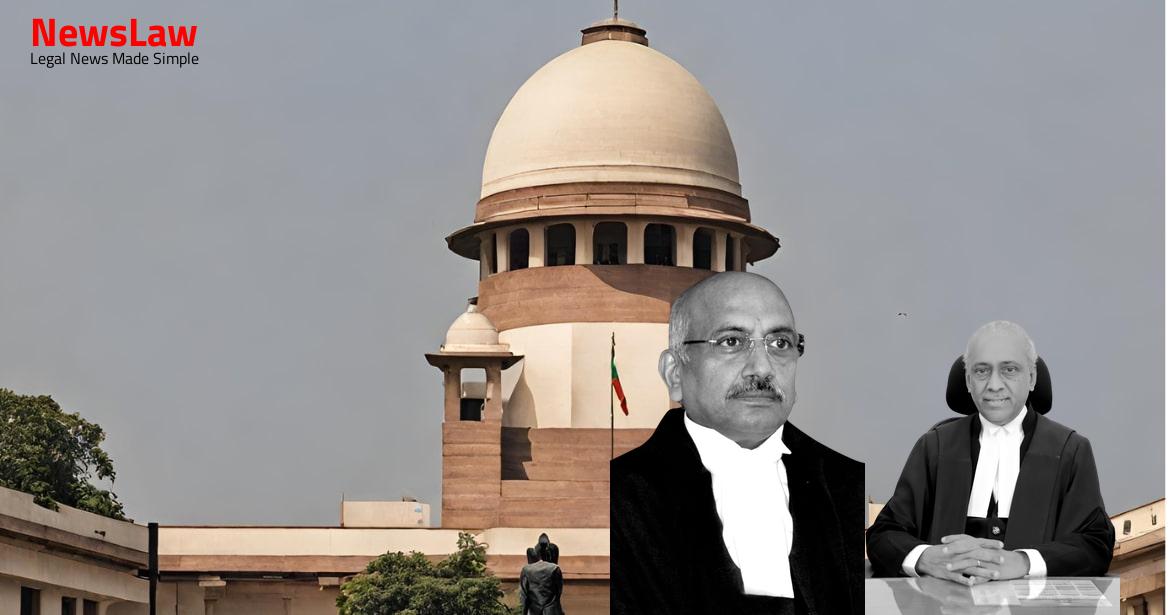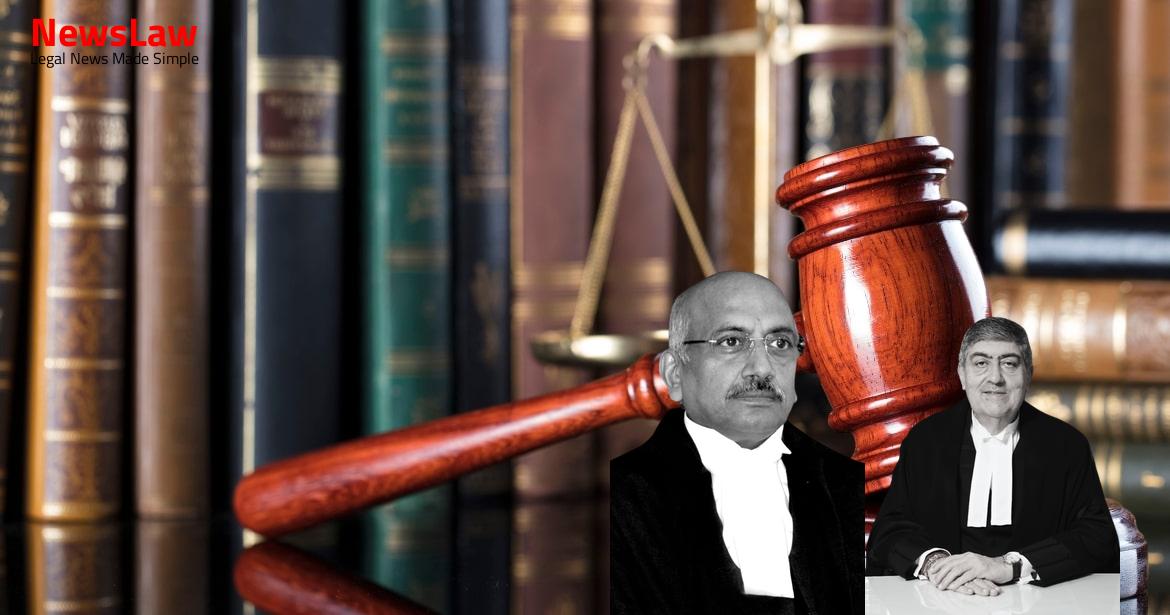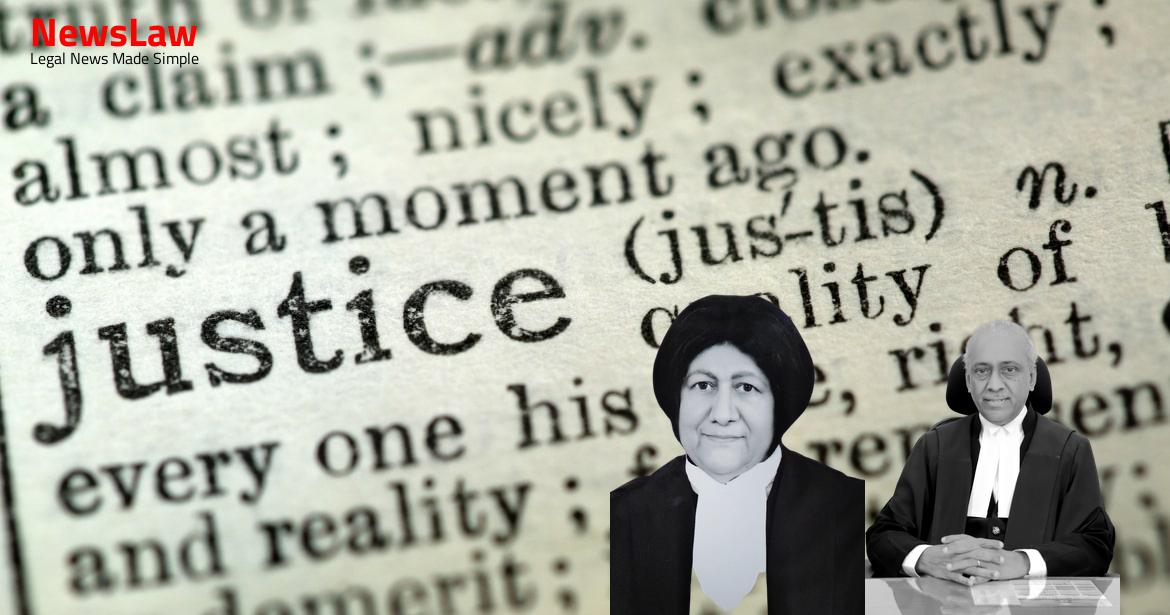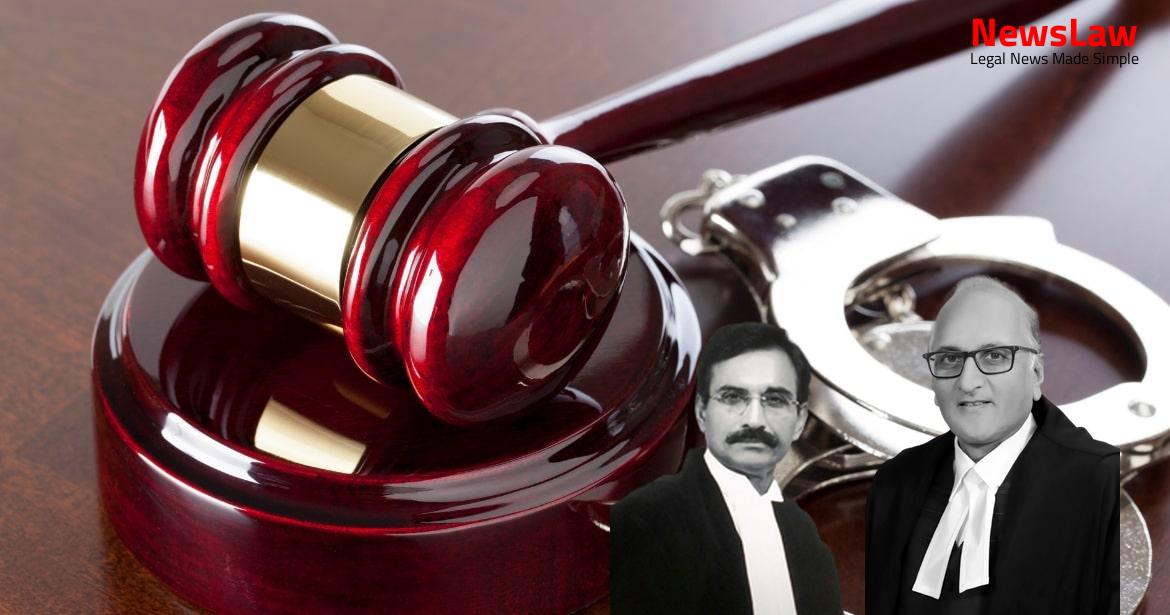In a recent legal case, the court delved into the crucial aspect of determining compensation multipliers in motor vehicle accident cases. The emphasis was on applying a suitable multiplier based on the age of the deceased to ensure fair compensation for the dependents. The court’s analysis focused on rectifying erroneous methodologies and aligning with established legal principles. Let’s explore the significance of this legal analysis in ensuring justice in compensation claims.
Facts
- Legal heirs of deceased V. Rajasekaran appealed against a High Court order granting compensation for his death in a motor vehicle accident.
- The deceased was riding a two-wheeler when a bus belonging to the respondent collided with his vehicle, causing him to suffer head injuries and die instantly.
- The accident occurred on 22.02.2011, when the deceased was 54 years old.
- The High Court granted a compensation of Rs.15,12,628/- along with 7.5% interest from the date of petition till realization.
- The Tribunal held the accident was due to the negligent driving of the bus driver.
- The deceased was paid a salary of Rs.23,062.30.
- The Tribunal awarded compensation totaling Rs.13,82,628/- on conventional heads.
- The High Court affirmed the Tribunal’s findings on the multiplier and dependency period.
- The compensation on account of dependency was maintained but increased under conventional heads to Rs.15,12,628/-.
- Future prospects were held at 15% for a deceased aged 50 to 60 years.
- The suitable multiplier for a deceased aged 54 was determined to be 11.
- The appellants were found entitled to compensation of Rs.24,33,064/- with 9% interest.
- The Tribunal assessed the income at Rs.23,062/- and deducted based on the age of superannuation.
- A compensation of Rs.7,47,216/- was awarded based on the deceased’s potential income.
Also Read: Landmark Judgment on Compensation for Fatal Accident
Arguments
- Learned counsel for the appellants argued against the multiplier methodology adopted by the Tribunal and affirmed by the High Court, terming it as erroneous.
- Reference was made to cases such as Uma Shankar & Ors. v. Revathy Vadivel & Ors., Smt. Kamlesh Devi & Ors. v. Sh. Kitab Singh & Ors., and Union of India & Ors. v. K.S. Lakshmi Kumar & Ors. to support the applicability of split multiplier method.
- The argument emphasized that the multiplier should be determined based on the age of the deceased at the time of death, not the remaining years of service left, as established in the Sarla Verma (Smt.) & Ors. v. Delhi Transport Corporation & Anr. case and upheld in subsequent judgments including Reshma Kumari & Ors. v. Madan Mohan & Anr.
Also Read: Land Acquisition Compensation Analysis
Analysis
- Age of the deceased is the basis for applying a suitable multiplier
- Compensation is to be determined considering future prospects
- Multiplier is applied based on the age of the deceased even if the deceased was a bachelor
- The judgments that do not apply a suitable multiplier based on the age of the deceased are no longer considered good law.
- This change is in line with para 59.7 of the judgment in Pranay Sethi.
- A suitable multiplier must be applied considering the age of the deceased to ensure fair compensation.
- The method of determination of compensation applying two multipliers is clearly erroneous
- The method runs counter to the judgment in Pranay Sethi case and the affirmed judgment in Sarla Verma case
Also Read: Judicial Review of Search and Seizure Authorization
Case Title: R. VALLI Vs. TAMIL NADU STATE TRANSPORT CORPORATION LTD. (2022 INSC 170)
Case Number: C.A. No.-001269-001269 / 2022



